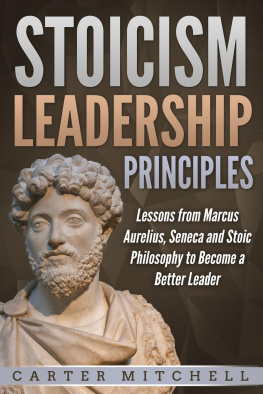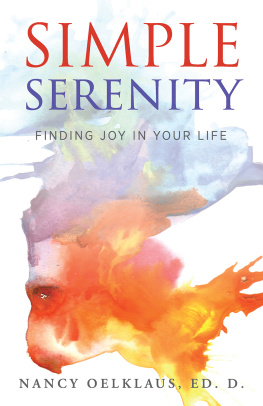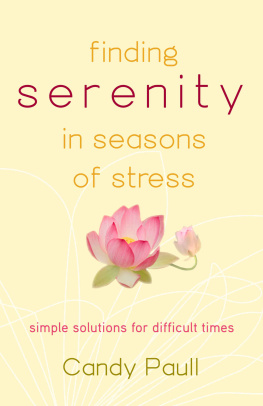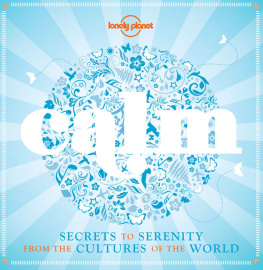This book has been arranged in five chapters to offer a sense of the very different ways in which we can both understand and practise serenity in our lives. They are not prescriptive and, naturally, many concepts have not made it into these pages. This is in the hope of achieving as broad and surprising a representation as possible. This book, of course, is not an effort to compile an exhaustive account of how calm and serenity manifest around our world, but rather offers an initial glimpse at the marvellous variety of these expressions.
A celebration of serenity
Above all, this book is a celebration. These varied and distinct colourings of calm reflect the many ways in which, with astonishing tenacity, human beings find peaceful ways to live. Let us be in awe of the steadfastness of the human spirit in choosing serenity, again and again, in our efforts to live well.
A NOTE FROM THE AUTHOR
Writing a book that draws upon so many divergent languages and traditions is not without its pitfalls. While I have made every effort to portray these terms and practices accurately, their untranslatable nature has made this a richly complex and delicate task. It has been my great privilege to gather and compile this collection as precisely and sensitively as possible, and I only hope that the generous reader will excuse me any accidental imprecisions.
CHAPTER ONE
Focus & Awareness
With an ever more enticing range of technological tools at our disposal, life in the developed world comes with a side dish of constant distraction. We check our email as soon as we wake up, get social media updates while we work and keep our phones bleeping away beside our beds at night. Simply put: in the modern age we find ourselves on call for the wider world twenty-four hours a day, every day. This is a sure-fire recipe for anxiety and, as such, many of us now look for ways that we can consciously slow down, catch our breath and unplug from the incessant buzz of the Internet.
While this may seem like a very modern dilemma, it turns out that all over the world humans have been trying to keep our cool and stay focussed for centuries (it is only the distractions that change). From the philosophy of ancient China and the intricate belief system of Buddhism to cultures as distinctive as those of Bulgaria or Hawaii all around the planet we have cultivated clever and treasured techniques to help us be more mindful.
These various practices remind us to stay in the moment and make sure we regularly reflect upon what is important to us. We can use these humble techniques and preferred pastimes to help us avoid becoming distracted by the onslaught of duties and dilemmas we all face, and to keep our minds calmly and resolutely focussed on our highest values. These values might include caring for the people we love, looking out for our wider communities, adhering to our ethical principles or just keeping our commitment to enjoy the moment. Let us take a whirlwind tour of how, in some very distinctive corners of our world, we opt to focus our attention and stay serene.
SHU ()
(Pinyin): sh | noun | Traditional Chinese
1. the Confucian virtue of compassion and concern for others
Many of us consider those we love to be at the centre of our lives, but if we stop to think about it we may find we actually spend very little time in the average day devoted to conscious reflection upon these cherished others. More than this, human beings often rely on the kindness of complete strangers; an idea reflected through folklore and fairy tales since time immemorial. Yet how much is this intertwinement with others reflected in the flurry of our daily activities? Perhaps not much at all.
Across cultures, languages, nations and religions we find variants of something that we in the West like to call The Golden Rule. This directive poses that in living our lives justly we should strive to treat others how we ourselves wish to be treated. This idea is a pretty useful one because, well, it renders everyone a winner. It is this spirit that is precisely captured in the traditional Chinese concept of shu (), which stems from Confucian philosophy and encapsulates concern and care for others. In modern Chinese usage, this word can also mean to forgive, to show mercy to or to accommodate others.













